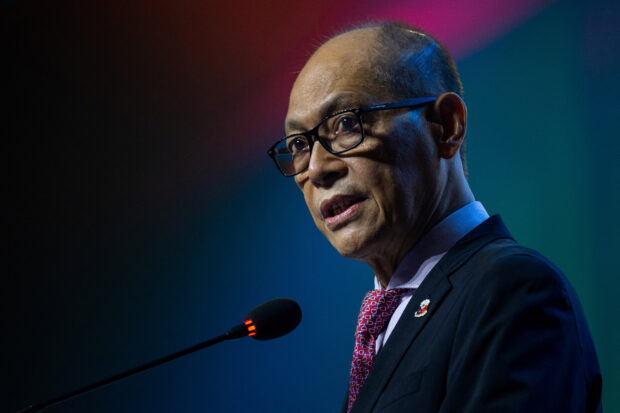The implementing rules and regulations (IRR) for the law that establishes the Maharlika Investment Fund (MIC) are expected to be out in the second week of August, which would pave the way for its management company to start operations within this year.
Finance Secretary Benjamin Diokno said in a press briefing the government is now on recruitment mode to fill up executive and staff positions for the Maharlika Investment Corp. or MIC.
“We expect that by September, the MIC will be staffed, either by appointment or secondment,” Diokno said.
Article IV of Republic Act No. 11954, the law that creates the MIF and the MIC, states that the MCI board, upon the recommendation of its president and chief executive, shall authorize the designation of non-executive personnel of government financial institutions to the MIC.
This will be subject to a process called secondment or temporary assignment from another office, the guidelines for which are laid down by the Civil Service Commission.
Diokno said that during the Marcos administration economic team’s trip to New York City and Toronto in Canada, they received expressions of interest among expatriate Filipinos working there, to sign up for jobs at the MIC.
P100 billion
Meanwhile, the finance chief said the MIC is expected to have mustered by the end of this year at least P100 billion of its P500-billion authorized capital stock (ACS).
The law states that initial capitalization shall consist of P50 billion from Land Bank of the Philippines, P25 billion from Development Bank of the Philippines, and P50 billion from the national government, which would mainly come from dividends of the Bangko Sentral ng Pilipinas.
The national government may also tap its share from the income of the Philippine Amusement and Gaming Corp., proceeds from privatization of government assets, and other sources like royalties as well as borrowings by the MIF itself.
Of the total P500 billion ACS, 75 percent or P375 billion shall have corresponding common shares available for subscription by the national government and other government organs including state-run firms and financial institutions.
The remaining 25 percent or P125 billion will also have corresponding nonvoting, preferred shares that will be available for subscription also by the national government and other state entities, but also open to “reputable private financial institutions and corporations.”
Fund contributors
“The involvement of these government financial institutions as contributors of the initial seed fund is reasonable and will not crowd-out other lending obligations that they need to fulfill under their respective mandates,” Diokno said.
“In fact, the expected return of Maharlika which is estimated to be around 8.6 percent on average, is much higher than their cost of capital and the return in their current investment placements,” he added.
Earlier, Diokno said the MIC was expected to be fully operational by the end of 2024.
MIC will identify financially and commercially viable infrastructure projects to invest in, and will formulate investment strategies covering emerging “megatrends” such as environment, social and governance (ESG); digitalization; and health care.
Also, MIF is intended to invest in a wide range of assets, including foreign currencies, fixed-income instruments, domestic and foreign corporate bonds, joint ventures, mergers and acquisitions, real estate and high-impact infrastructure projects, and projects that contribute to sustainable development. INQ
